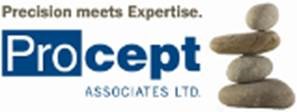Course Description
Participants will gain insight into the Business Analyst profession, the role the Business Analyst (BA) plays within an organization, the required skills and applicable tools, and techniques and methodologies for immediate use on the job. The course presents the latest trends in the profession including the evolution of the role of the BA, along with an overview of data analytics and agile concepts. These topics are covered in greater detail in the advanced courses.
There is extensive coverage on requirements and how to overcome the challenges organizations face when trying to extract and document clear and meaningful business requirements and convert them into product and solution specifications. Concepts are presented in an interactive, dynamic way that involves an introduction, real-life examples, conversations, discussions, and application of the tools through case studies, exercises, and engaging activities.
This course aligns with the Business Analysis Planning and Monitoring, and Requirements Communication and Management knowledge areas from the Business Analysis Body of Knowledge® (BABOK®), as well as with the corresponding concepts from the PMI-PBA® certificate.
Course Outline
- Day 1: Introduction to Business Analysis
- Day 2: The roles of and the boundaries between the BA and the Project Manager, Scrum Master, Product Owner, and technical team members.
- Day 3: Career paths for BAs
- Day 4: Overview of data analytics and agile concepts
- Day 5: Business analysis planning and monitoring, establishing a BA Framework, and estimating for BAs
- Day 6: Requirements end to end including planning, elicitation, communication, analysis, modeling, documentation, and lifecycle management
What You Will Learn
- Apply business analysis tools and techniques to enable change
- Distinguish between business analysis and project management
- Explain the profession, professional organization, global standards, and trends in the industry
- List and provide examples of different requirement types
- Identify advantages and disadvantages of different elicitation techniques, elicit requirements using six different elicitation techniques, and establish a requirements elicitation process
- Develop an effective requirements life cycle management process
- Integrate effective communication practices into business analysis and documentation
- Explore the role of the BA in both traditional and agile environments
- Review data analytics concepts and learn how to use data in the right context
Notes
By enrolling in this course, you will be automatically enrolled in the Certificate in Business Analysis.Recommended For
- People who want to pursue a career in business analysis
- Technical team members and project managers
- Business analysts who want to enhance their business analysis skills
- Managers and other stakeholders who work with business analysts
Applies Towards the Following Certificates
- Certificate in Business Analysis : Required
 Procept has a long and rich history delivering professional training in Canada and around the world. Procept delivered the first Project Management Professional (PMP®) preparation class in Canada, created the first formal project management course delivered through a continuing education division at a Canadian university at the Professional Development Centre of University of Toronto's Faculty of Engineering and Applied Science, and delivered the first course on agile project management offered through a Canadian university. Today, Procept maintains its relationships with higher education, offering classes through one US and five Canadian universities. Procept instructors teach graduate classes in the Master of Engineering programs at several universities as well as post-graduate professional development classes.
Procept has a long and rich history delivering professional training in Canada and around the world. Procept delivered the first Project Management Professional (PMP®) preparation class in Canada, created the first formal project management course delivered through a continuing education division at a Canadian university at the Professional Development Centre of University of Toronto's Faculty of Engineering and Applied Science, and delivered the first course on agile project management offered through a Canadian university. Today, Procept maintains its relationships with higher education, offering classes through one US and five Canadian universities. Procept instructors teach graduate classes in the Master of Engineering programs at several universities as well as post-graduate professional development classes.